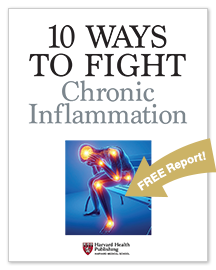To gluten or not to gluten?

Follow me on Twitter @mallikamarshall
To gluten or not to gluten? That is the question that millions of Americans are now asking themselves. You can't walk into a grocery store or restaurant these days without having to choose between one or the other. The signs are everywhere. "Certified gluten-free" this and "100% gluten free" that. "Hold the gluten" here and "gluten warning" there. Dizzying displays of gluten-free products on store shelves and café counters. What is going on?
Products, products, everywhere but not a drop of gluten
There is no doubt that the recent explosion of available gluten-free foods has been a godsend for people with celiac disease, an autoimmune disorder in which the immune system attacks a protein called gluten. Gluten is found in many grains like wheat, barley, and rye, and if consumed it can lead to widespread inflammation in the gut and debilitating pain. Patients can also develop joint pain, fatigue, and anemia, and if left untreated the condition can be life-threatening. The treatment is to avoid all foods with gluten, which can be incredibly difficult given how much grain is in the typical American diet.
But why the recent obsession with going gluten-free in America? Is it because there has been a sudden rise in the number of people with celiac disease? Or is it just the latest diet craze that has turned into a multi-billion-dollar business?
Scientists at Rutgers New Jersey Medical School wanted to find out, so they looked at data on 22,278 people who participated in the National Health and Nutrition Examination Surveys from 2009 to 2014. They found that while the prevalence of celiac disease remained fairly stable over those five years, the number of people who followed a gluten-free diet without having celiac disease more than tripled.
Is going gluten free (if you don't have to) good for you?
That means that there are lots of people who don't carry the diagnosis of celiac disease who are buying gluten-free products. But why? The researchers suggest that some gluten-free consumers may not have celiac disease but may have gluten sensitivity, and notice that when they eliminate gluten they feel better. That's certainly understandable.
But there also appears to be a significant number of people who think gluten-free foods are healthier. Truth is, they're not. I have interviewed experts in the field who say for the average person who doesn't have gluten issues, gluten-free foods may actually be less healthy than the real thing. They may contain more sugar and fat to make them taste better and you miss out on some nutrients by avoiding whole grains in your diet.
And while gluten-free foods are more palatable than they were 10 years ago, they often don't taste that good. Plus, gluten-free products tend to be more expensive.
So if gluten doesn't make you sick and gluten-free foods can be less healthy, taste bad, and cost more, next time you're faced with the question of whether to gluten or not to gluten, you might be wiser to reach for the whole grain bread.
Disclaimer:
As a service to our readers, Harvard Health Publishing provides access to our library of archived content. Please note the date of last review or update on all articles.
No content on this site, regardless of date, should ever be used as a substitute for direct medical advice from your doctor or other qualified clinician.















